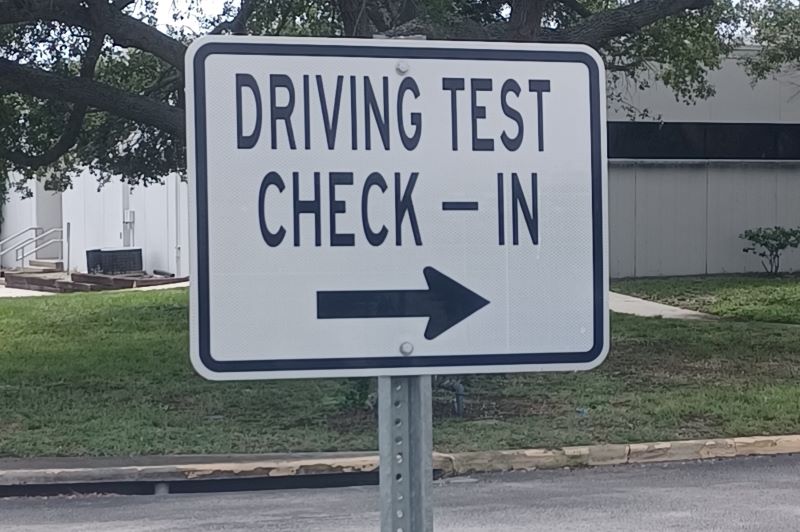I rarely drive. My life is structured so that I generally don’t need to.
BUT
Like so many others, I still have a driver’s license (with the designation that I use an assistive device) and I’ve wanted to keep it as long as I could. It’s a safety measure and it helps me to keep doing all that I can for as long as I can.
So, this year when my license came up for renewal and I received a letter telling me to report to the Department of Motor Vehicles (DMV) office for the standard eye test, I did as required.
But what ensued was an incredibly unexpected and challenging series of events and yet another reminder that:
- Systems are often not set up for “differently-abled” people
- Despite that, each of us is entitled to “reasonable accommodation”
- And often, advocating (strongly) for ourselves is necessary!
And so it was in this case. Between April 15 and July 19, I met, spoke, emailed or texted with DMV and my doctor’s office about 18 times in order to simply schedule, take and pass a road test for recertification. With my mobility disability I expected that I might have had to resubmit a physician’s form or repeat my road test to show the state that I could continue to drive a car safely. These were the steps I had taken 8 years earlier when I had first gotten my license in this state after having moved here.
It quickly became clear that my state’s DMV either does not have clear guidelines for “outliers” like me (wheelchair dependent driver using portable hand-controls) or their employees are not trained regarding their guidelines.
At the DMV office they told me that my record indicated I needed a medical review from the state…
- So I sent the required form to my doctor.
- The doctor’s office completed the form and emailed it to me.
- I scanned and then electronically sent it to DMV headquarters.
- Weeks later I received another letter from DMV telling me to get an evaluation by a Driver Rehabilitation Specialist (a private business, not the state DMV).
- I called the Driver Rehabilitation Specialist (who was on vacation and didn’t call me back for over a week).
- Driver Rehabilitation Specialist informed me that he would bring his specially equipped vehicle to my house and would evaluate my driving here. I have never driven that type of apparatus, don’t have training to use it and will not be buying it for our vehicle. AND, THE FEE FOR HIS TIME WAS GOING TO BE $500.00!
- I immediately saw this as outrageous and probably a violation of the Americans with Disabilities Act (ADA).
- And I said “No thank you” to him and thought through my next step options.
- I called DMV and reported what I had been told. The clerk said “Well, driving is a privilege and that’s just what you need to do to have that privilege”.
- I saw on the paperwork that I could request a review. And that’s what I did.
- In the meantime, I also recontacted my doctor’s office to confirm that my medical records reports confirmed my continued abilities. (They do)
- Amazingly, DMV re-contacted me only two hours later saying that, on review, they determined that I could go to my local DMV driving test site and take an extended road test.
- Three weeks later (after my license had already expired) I finally received the letter from DMV confirming this decision.
- I called DMV, scheduled my test.
- On July 19th I took my test, passed it with flying colors and paid my standard renewal fee of $56.75.
At several points during this process, I asked myself “is it worth it?” I asked whether I should just give up my license and fully accept my reality. But I realized that I might regret that decision. I might regret not maintaining my skills. I might regret not working to show myself and others how we can continue to live life fully even with disabilities.
I learned a number of lessons from this adventure.
- While we have to be honest with ourselves about our (changing?) abilities and the challenges we face, we can keep working to be our best and fighting for our rights.
- Often strangers don’t understand our abilities and needs as we do. So, it is important to educate them as best we can.
- When we know that we are right it is important to stand up for that.
- There are others who can help us achieve our goals (Doctor’s offices?) It is useful to remember to reach out to them.
- Especially when it comes to disabilities, it is important for us to know our legal rights under the Americans with Disabilities Act (ADA). https://www.ada.gov/
- While each state’s DMV can be different, it is my understanding that many systems are a bit complicated, confusing and incomplete relative to the needs of people with disabilities.
In the end, I was reminded of how important it is for all of us to know our value, our abilities and our needs. And be ready and willing to stand up for ourselves and our rights!


 This website is designed to give you practical tips, advice and links that will support your journey to seek out the solutions that work best for you.
This website is designed to give you practical tips, advice and links that will support your journey to seek out the solutions that work best for you.
BRAVO Gloria!! Well done. Your story will impact and encourage others as they face renewals to stand proud and strong!!